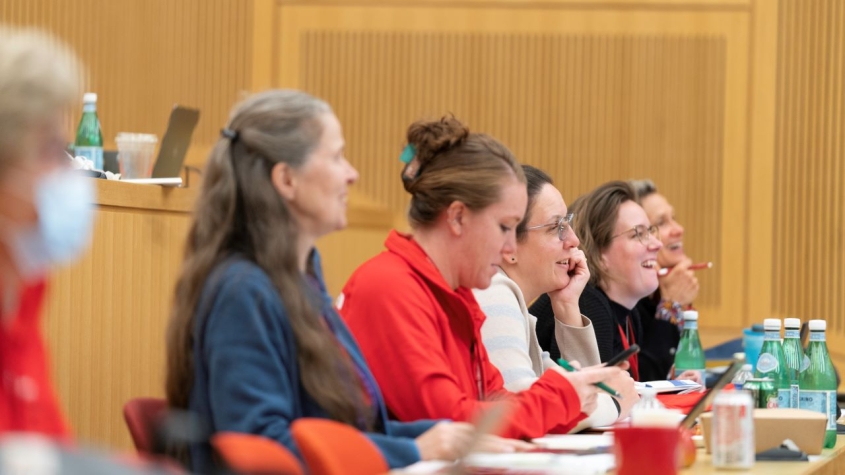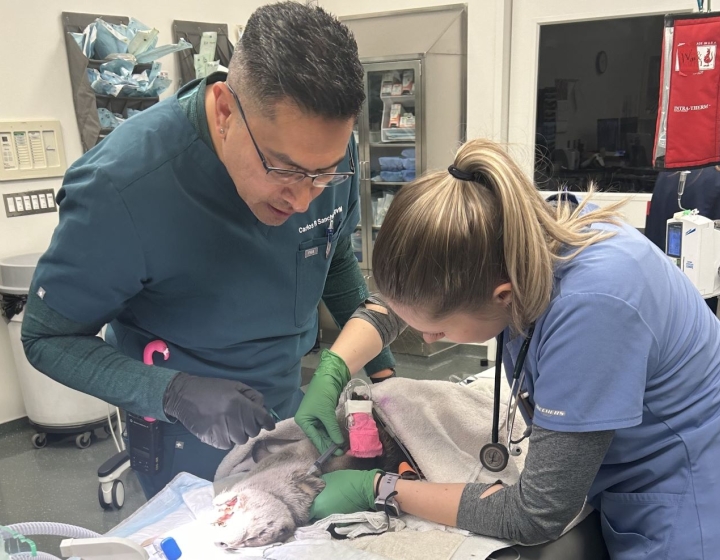Upcoming education conference tackles new technologies in clinical teaching
On June 27-29, Cornell University’s College of Veterinary Medicine will host its sixth annual conference for the Cornell Veterinary Educators Academy (CVEA) in Ithaca, New York.
This conference will be the first overseen by the CVEA’s new executive director, Julia Felippe, Ph.D. ’02, professor of large animal medicine, who takes over from Katherine Edmondson, M.S. ’85, Ph.D. ’89, who launched and led the CVEA since 2021.
“I am honored to continue Dr. Edmondson’s inspiring outlook on the Veterinary Educators Academy,” says Felippe. “My experiences with pre-clinical and clinical education, clinical care and training, and community of practice bring synergy to the program’s goal of educational innovation across the veterinary curriculum.”
Felippe has served as the college’s veterinary curriculum director, as a provost’s fellow for public engagement, and is currently a member of the American Veterinary Medical Association Council on Education. Since 2002, she has worked as an educator, researcher and clinician at CVM, and has taught in each of the four years of the D.V.M. program, including problem-based learning, large animal clinical skills labs, observed structured clinical examinations, case-based lectures, and teaching through service on the clinical floor.
This first CVEA conference under Felippe’s leadership is titled "Old School, New School: Technologies Transforming Clinical Learning and Practice in Health Professions Education," and will gather clinicians, educators and researchers to explore emerging technologies and their impact on clinical education and care. Felippe notes the event will drive discussions on “how curricula prepare future health professionals for critical, prudent and ethical use of technology in their practice.”
Three keynote speakers will present on timely and relevant topics:
- Dr. Laurah Turner, associate dean for artificial intelligence and educational informatics at the University of Cincinnati College of Medicine: “Applied intelligence: Integrating AI technologies into health professions education.”
- Dr. Cornelius James, assistant clinical professor in the Departments of Internal Medicine, Pediatrics and Learning Health Sciences at the University of Michigan: “Charting the future: Equipping health care professionals for the AI revolution in clinical practice.”
- Dr. Thomas Thesen, associate professor of medical education at Dartmouth’s Geisel School of Medicine and director of the neuroscience-informed learning and education (NILE) lab: “What do clinicians need to know about AI and digital health?”
The conference will also feature workshops on a wide range of topics, lightning rounds and presentations from CVEA fellows, cultivating many opportunities for networking and knowledge-sharing among attendees.
“We will have opportunities for sharing educational experiences during interactive sessions and will continue conversations during the social events, promoting a community of practice among participants,” says Felippe.
Those interested may register for the upcoming CVEA conference here.
Written by Lauren Cahoon Roberts






